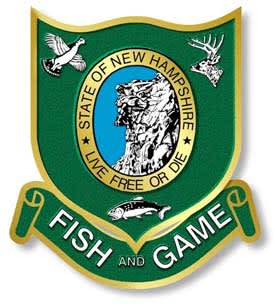On the Watch for Wild Turkeys in New Hampshire
OutdoorHub 11.18.11

Concord, N.H. — Turkey productivity was average in 2011, according to a report just released by the New Hampshire Fish and Game Department summarizing results of its first-ever wild turkey brood survey. The effort was accomplished with the help of hundreds of interested people across the state who reported sightings of flocks with young turkeys via an online reporting site this spring and summer. The survey took place from May 15-August 31, 2011. For the past three years, Fish and Game has conducted an online winter flock survey using citizen participation, but this was the first year the public could provide data to help scientists estimate how many young turkeys survive into adulthood in a particular year.
“Our biologists typically survey about 20 “broods” (groups of hens and young turkeys), but with the help of interested citizens who took the time to report their sightings, we now have data on 800 broods,” said Mark Ellingwood, a wildlife biologist for Fish and Game.
The public reported a total of 808 turkey broods, comprised of a total of 1,476 adult hens and 7,076 chicks and poults (young turkeys). The overall average brood count was 4.8 poults per hen.
Hatching success and survival of turkey poults was moderately good during 2011, according to the report. Rain was a big factor, with an abundance of precipitation from April through September. Fortunately, the critical hatching time for turkeys, which occurred from May 25 through June 7 this year, turned out to be a period of hot, muggy days.
“Considering the significant rainfall throughout spring and summer 2011, we should be thankful for this decent turkey hatch,” wrote Fish and Game Turkey Biologist Ted Walski in the report.
Weather during the peak hatching time has a big effect on the number of young turkeys that survive to adulthood. Young turkeys are extremely sensitive to cool temperatures and rain, which can affect their health and reduce insect populations that are a critical source of nutrition. Since spring weather is highly variable, survival of the annual hatch of wild turkeys is also uncertain.
Turkey populations depend on a large annual influx of young turkeys to sustain themselves over time. Thus, the number of young turkeys that survive to be “recruited” into the adult population is of great interest to turkey managers. A large sample of turkey brood observations collected throughout the summer can provide turkey managers with insight into the size of the “graduating class” of turkeys that will become adults. This explains why turkey managers throughout the country incorporate information from brood surveys into their management programs.
The summer survey tracks turkey broods, not adult male turkeys. The term “brood” refers to a family group of young turkeys accompanied by a hen (female). New Hampshire wild turkey hens generally begin laying eggs in mid-April and complete their clutch of about twelve eggs in early May. Incubation lasts for 26 days, and most nests hatch from late May to mid-June. If incubating turkey eggs are destroyed or consumed by predators, hens often lay a replacement clutch of eggs that hatch late June through late July.
“It’s encouraging that so many people took the time to participate in our turkey brood survey,” said Ellingwood. “This survey expands the data we have to inform our management decisions and gives citizen conservationists a chance to contribute to our efforts.”
New Hampshire has an estimated population of about 40,000 wild turkeys. Opportunities for watching and reporting on turkey sightings will continue in the coming year. A winter flock survey starts in January, and next year’s turkey brood survey kicks off in mid-May. Judging from results so far, a growing cadre of enthusiastic New Hampshire turkey watchers will be ready, willing and able to help.
A summary of survey results may be viewed on the Fish and Game website at http://www.wildnh.com/turkeybroodsurvey (click on “2011 Survey Report”).
Wildlife research and management in New Hampshire is funded in part by Federal Aid in Wildlife Restoration, a user-pay, user-benefit program supported by the purchase of fishing tackle, firearms, ammunition, archery equipment and motorboat fuels.
The New Hampshire Fish and Game Department is the guardian of the state’s fish, wildlife and marine resources and their habitats. Visit http://www.wildnh.com.

